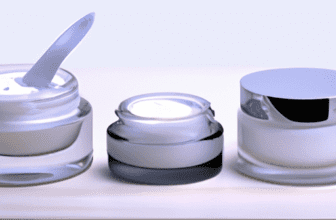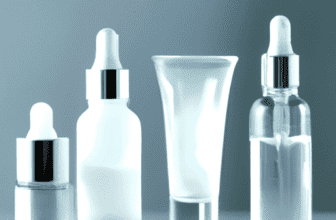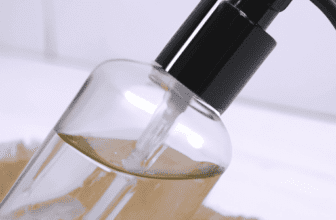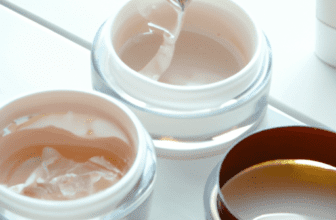Debunking the Myth: Can Moisturizer Cause Acne?
.jpg)
Key Takeaway:
- Moisturizers can benefit acne-prone skin: By relieving dryness and reducing blemishes, moisturizers can improve the overall appearance of acne-prone skin. They can also help regulate sebum production, which can help prevent future breakouts.
- Over-moisturizing can lead to clogged pores and breakouts: While moisturizing is important, overdoing it can lead to clogged pores and frequent breakouts. It is important to avoid moisturizers with certain ingredients, such as heavy oils and fragrances, which can exacerbate acne-prone skin.
- Choose the right moisturizer for acne-prone skin: Look for lightweight, non-comedogenic moisturizers that are specifically formulated for acne-prone skin. It is also important to pay attention to how your skin reacts to moisturizing and adjust your routine accordingly.
Introduction
Moisturizers are important for most people’s skin care routines, providing hydration to keep skin smooth and healthy. But, can moisturizers lead to acne? It is thought that some moisturizers can block pores, leading to pimples.
Studies have shown that oil-based moisturizers can worsen acne. These can clog pores and mix with dead skin cells, causing comedones. Non-comedogenic moisturizers are made not to block pores, so they are better for acne-prone skin.
When picking a moisturizer, consider the ingredients. Oils and fragrances can irritate skin and cause breakouts. So, select a non-comedogenic moisturizer with no irritants.
To show this, someone with acne-prone skin changed from a coconut oil moisturizer, which blocks pores, to a non-comedogenic one. Their skin improved and had fewer breakouts.
The Benefits of Moisturizers for Acne-Prone Skin
Moisturizers are a must-have in any skincare routine, especially for those with acne-prone skin. Oily-skinned people may wonder why they need additional moisture, but it can actually help to regulate their excess oil production and counteract dryness caused by acne treatments. Surprisingly, moisturizers have many benefits for treating acne.
One big advantage of using a moisturizer with acne-prone skin is that it prevents dryness caused by acne treatments. These treatments usually strip the skin of its natural oils, leading to more acne and dryness. Moisturizers help restore the skin’s moisture barrier, avoiding further dryness and irritation.
Another misconception is that moisturizers cause acne. While some can clog pores and make acne worse, there are non-comedogenic formulas that can prevent breakouts. These moisturizers are designed not to clog pores, which makes them great for acne-prone skin.
Moisturizers can also help soothe irritated skin, which often happens when using harsh acne treatments. Moisturizers with ingredients like aloe vera can reduce inflammation and redness, making the skin feel more comfortable.
Finally, moisturizers provide a shield against pollution and UV radiation, reducing the risk of acne.
To get the most out of moisturizers for acne-prone skin, you must choose the right kind. Opt for non-comedogenic, oil-free formulas containing hyaluronic acid to hydrate the skin without clogging pores. Applying moisturizer in gentle, upward motions will also prevent skin damage and irritation. Adding a moisturizer to your daily skincare routine can help keep your skin clear and healthy.
Negative Effects of Over-Moisturizing on Acne-Prone Skin
Moisturizing is essential for any skincare regime, especially for those with dry skin. But, too much moisturizing can have bad effects on acne-prone skin. Moisturizer itself won’t cause acne, but certain ingredients can clog pores and lead to breakouts. To avoid worsening acne, pick a non-comedogenic and oil-free moisturizer.
You also need to be aware of the amount of moisturizer used. Too much moisturizing can cause product buildup on the skin, clogging pores and causing breakouts. This is especially true for people with oily skin since over-moisturizing will increase oil production and cause more acne. To avoid bad effects on acne-prone skin, find the right balance when it comes to moisturizing.
Timing of moisturizer application is also crucial. Applying moisturizer at night can be helpful since skin is usually drier at night and needs extra hydration. Nevertheless, even at night, don’t over-moisturize. Listen to your skin and make a moisturizing routine that fits your needs.
How to Choose the Right Moisturizer for Acne-Prone Skin
For those with acne-prone skin, keeping skin healthy can be tough. Picking the right moisturizer is essential, as the wrong one can make acne worse. To avoid this, understanding what makes a suitable moisturizer is key.
Look for “non-comedogenic” moisturizers, to stop pores from clogging. Also, avoid heavy oils and fragrances that can irritate skin and cause breakouts. Pick lightweight, oil-free items to hydrate without worsening acne.
Consider using salicylic acid or benzoyl peroxide-containing moisturizers. These fight against inflammation and acne. Finally, select a moisturizer suitable for your skin type and needs. Oily skin needs oil-control or mattifying moisturizers, while dry skin requires hydrating and nourishing formulas.
Remember, moisturizers won’t cure acne. To tackle it, use a mix of acne-fighting products. By following these tips, you can pick the appropriate moisturizer for your acne-prone skin and keep it healthy.
Moisturizing Tips for Men with Acne-Prone Skin
Men with acne-prone skin must moisturize for healthy and hydrated skin. Popular belief is wrong, moisturizers don’t cause acne. Select a non-comedogenic moisturizer to prevent blocked pores. Avoid heavy fragranced moisturizers that irritate skin. Men should moisturize twice a day: after cleansing in the morning and before bed at night.
The right moisturizer can keep skin hydrated and avoid dryness, which can lead to acne. Consider oil-free moisturizers that won’t clog pores or cause breakouts.
It may feel overwhelming, but by selecting the right products and following these tips, men can keep their skin healthy and reduce acne flare-ups.
Misconceptions About Moisturizers and Acne
Misconceptions about moisturizers and acne have been around for a long time. But, moisturizers can actually improve acne-prone skin.
Choose an oil-free, non-comedogenic moisturizer specifically formulated for oily or acne-prone skin. Look for ingredients like salicylic acid or benzoyl peroxide to target acne.
Avoid products with comedogenic ingredients like oils or heavy creams. Read the labels and pick one that suits your skin type.
Everyone needs a moisturizer regardless of skin type. When the skin is dehydrated, it produces more oil, leading to breakouts. A moisturized skin can regulate oil production, reducing breakouts.
If acne is a problem, consult a dermatologist to determine the best course of action.
Conclusion
Moisturizers are essential for any skincare routine. There has been much debate about whether they can cause acne. But research suggests that they don’t! In fact, they are very beneficial for the skin. Moisturizers keep skin hydrated and protect it from environmental stressors.
When skin is dehydrated, it produces more oil. This can result in breakouts. So, you must pick an appropriate moisturizer for your skin type and use it regularly. Although moisturizers don’t directly cause acne, some types can clog pores and lead to comedones. Non-comedogenic moisturizers are designed to not block pores.
It’s also important to not overuse moisturizer. All in all, moisturizers are important for skincare and don’t cause acne. By choosing a non-comedogenic moisturizer that’s right for you and using it in moderation, you’ll have healthy, glowing skin. Taking care of your skin is essential for a radiant complexion.
Five Facts About Can Moisturizer Cause Acne:
- ✅ Not using a moisturizer can cause the skin to become drier and produce more oil. (Source: Team Research)
- ✅ Over-moisturizing can lead to clogged pores, frequent breakouts, rashes and redness, excess oil production, and tight skin. (Source: Team Research)
- ✅ Recommended products for acne-prone skin include oil-free and non-comedogenic moisturizers. (Source: Team Research)
- ✅ Using moisturizer in moderation can help relieve dry skin, maintain sebum production, and reduce blemishes. (Source: Stryx)
- ✅ Some dermatologists believe that moisturizers may contribute to adult acne. (Source: sk:n clinics)
FAQs about Can Moisturizer Cause Acne
Can moisturizer cause acne?
Using moisturizer in moderation can actually be good for acne-prone skin, as it can help reduce dryness and balance sebum production. However, over-moisturizing can lead to clogged pores, frequent breakouts, excess oil production, and tight skin.
What type of moisturizer is good for acne?
Oil-free and non-comedogenic moisturizers are typically recommended for acne-prone skin. It is important to avoid moisturizers with fragrances, alcohol, and heavy oils, which can worsen acne and other skin concerns.
Can moisturizer help reduce acne?
When used in moderation and with the right ingredients, moisturizer can actually help reduce acne by relieving dryness, maintaining sebum production, and reducing blemishes. It is important to carefully choose and use moisturizers to avoid worsening acne and other skin concerns.
Is face moisturizer one essential product in a skincare routine?
Yes, face moisturizer is one essential product in a skincare routine, as it can help keep the skin hydrated and balanced. However, it is important to use it in moderation and choose the right type of moisturizer for your skin type and needs.
Can moisturizers make skin worse?
Overuse of moisturizers can lead to clogged pores, acne breakouts, sensitivity, dryness, and accumulation of dead skin cells. While moisturizers are beneficial when used in moderation, it is important to avoid using too much and choose moisturizers with natural ingredients.
Is drinking water enough to hydrate the skin, or do we need moisturizer?
While drinking water is important for overall hydration, it is not enough to keep the skin hydrated. Moisturizer works by trapping moisture in the skin and preventing water from evaporating, which is essential for maintaining healthy skin. It is important to make sure to use moisturizer in moderation and to choose the right type for your skin type and needs.





